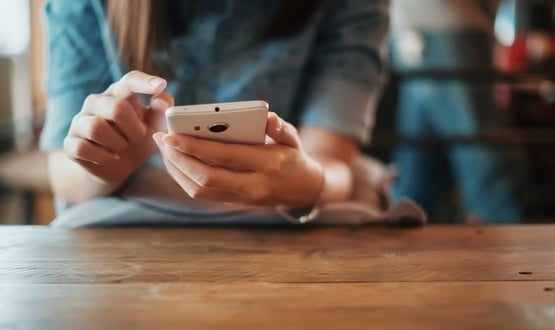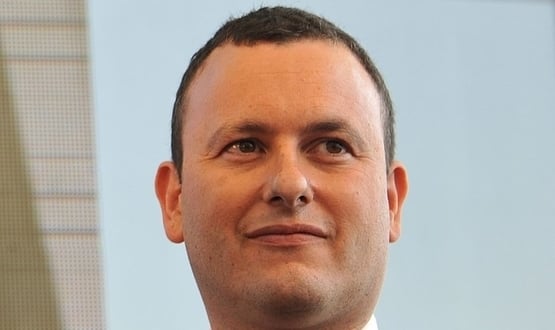NHSX working on coronavirus contact tracking app

NHSX is in the process of developing a contact tracking app to monitor the spread of coronavirus.
The app, which would operate on an opt-in basis, would alert people to new cases in their area as well as allowing people to input their own symptoms, Digital Health News understands.
If a person develops symptoms of Covid-19 they will be able to put that information into the app, which will then share that data with relevant health authorities.
That information will be used to track where the virus is spreading and also alert other app users that cases are rising in their area.
Matthew Gould, chief executive of NHSX, said: “NHSX are looking at whether app-based solutions might be helpful in tracking and managing coronavirus, and we have assembled expertise from inside and outside the organisation to do this as rapidly as possible.”
A team of medical research experts at Oxford University are currently exploring the feasibility of a coronavirus mobile app for instant contact tracing.
The team has provided European governments, including the UK, with evidence to support the feasibility of developing an app that is instant and can be widely deployed.
The team recommends that the mobile application should form part of an integrated coronavirus control strategy that identifies infected people and their recent person-to-person contacts using digital technology.
Professor Christophe Fraser, of Oxford University’s Big Data Institute, said: “Coronavirus is unlike previous epidemics and requires multiple inter-dependent containment strategies.
“Our analysis suggests that almost half of coronavirus transmissions occur in the very early phase of infection, before symptoms appear, so we need a fast and effective mobile app for alerting people who have been exposed.
“Our mathematical modeling suggests that traditional public health contact tracing methods are too slow to keep up with this virus.”
[themify_box icon=”info” color=”gray”]
Other Covid-19 related news on Digital Health:
- NHS England issues 48-hour tender for online primary care consultations
- Clinicians told they can use WhatsApp to share data in face of Covid-19
- Health tech suppliers offer support during coronavirus outbreak
- COVID-19: More than one million access NHS 111 support for coronavirus
- NHS Digital to be handed more powers to help counter Covid-19 spread
- Sick notes to be automated through NHS 111 to prevent Covid-19 spread
[/themify_box]
Professor Fraser said the concept of the app is “very simple”.
“If you are diagnosed with coronavirus, the people you’ve recently come into contact with will be messaged advising them to isolate,” he adds.
“If this mobile app is developed and deployed rapidly, and enough people opt-in to use such an approach, we can slow the spread of coronavirus and mitigate against devastating human, economic and social impacts.”
Dr David Bonsall researcher at Oxford’s Nuffield Department of Medicine explained current contact testing strategies are no longer viable.
“At the current stage of the epidemic, contact tracing can no longer be performed effectively by public health officials in the UK, and many countries across Europe, as coronavirus is spreading too rapidly,” he said.
“Our research of early data from other countries shows that patient histories are incomplete – we don’t know the details of the person we sat next to on the bus. We need an instantaneous and anonymous digital solution to confirm our person-to-person contact history.”
The team are currently simulating performance of the app, which could be combined with social distancing measures.





15 Comments
We had been looking at something similar please feel free to pull anything useful out of this
The Personal Contact Traceability App (PCT)
Background
To date most traceability apps to assist with covid 19 tracing have been based on geolocation. In reality the key information required for anyone diagnosed, is who they were in contact with over the last 21 days and how long they were in contact with that person, and also how close they were to that person.
Functionality
On each phone there is a database which holds
1) IMEI number of other local phones
2) Time stamp first contact of IMEI number
3) Time stamp for last contact of IMEI number
The data is gathered from other mobile phones running the app via Bluetooth
The app polls once a minute for local phone IMEI number.
Utilising Bluetooth results are primarily only local contact results being delivered
The data is held on the device for 21 days (or longer dependent on clinical guidance)
When traceability is required, network operators can access the app and convert the stored IMEI number to contact information to trace people.
The time stamps info will identify people who have been in contact for a very short period, such as passing them on a walk, which is potentially not critical as against a longer period which will therefore maximise tracing resources.
For this to be effective the majority of the population will have to download the app to their phone
For additional security the database on the phone can be encrypted
To be successful this needs to be a government national implementation rather than being some corporate venture which potentially will be mistrusted
Phone schematic
Phone P1 has stored IMEI of P4,P6,P3
Phone P2 has stored IMEI of P10,P8
Phone P3 has stored IMEI of P1, P9
Phone P4 has stored IMEI of P1, P8
Phone P5 has stored IMEI of none of them
Phone P6 has stored IMEI of P7,P1
Phone P7 has stored IMEI of P8,P6
Phone P8 has stored IMEI of P4,P7
Phone P9 has stored IMEI of P3,P11
Phone P10 has stored IMEI P11, P2
Phone P11 has stored IMEI of P10,P9
Along with time stamps
A contact tracing app would need:-
* To be used worldwide
* To be installed before any COVID-19 symptoms develop
* To be available in most world languages
* To clearly describe how it operates
* To transparently explain what user data is shared and how privacy is achieved
* To dissuade users from falsely reporting that they tested positive
* (Potentially) to allow users to report that they have symptoms but were unable to get tested
* To have a simple bullet point description (also available in most world languages)
* Could be rolled out through the World Health Organization (probably the best chance of getting it adopted and translated globally)
* Would need to be made available on Google Play and Apple App Store
* Would be free and ideally open source
Oxford University page does not allow comments, else I would have posted this comment there.
I need to get sick note to cover me for 12 weeks isolation as I am a vulnerable carer working for the orchard trust and have been advised to self isolate
Hi Carole, NHS Digital has said the notes can be accessed via NHS 111 (https://111.nhs.uk/isolation-note/) or NHS.UK, as well as via the NHS app.
This one is being widely recommended: https://covid.joinzoe.com/
Is this legit. Can’t connect day 2. Feel I’ve been had.
Can’t connect day 2
Should we be a bit more open and honest on what we are doing?
An app is probably good but it is part of the solution. I can self isolate by using nhs111 online, I can be told to self isolate by telephone triage by GP, 111, etc. I can be tested by a lab system.
For the app to be effective, wouldn’t it need access to this data, probably as few sources as possible? Ideally these systems collect and make a available similar templates with coded entries (snomed, icd9 and/or read?). The key sources can be populated other systems. (Key sources include gp systems).
All of these have ready made solutions. Some things we dont know, what do the tests look like, what information do you want shared, what codes, etc.
Can we stop the ‘social’ distancing on tech and process?
Been talking with companies with location tech and 5G experience with a view to an app that identifies social distance indoor and outdoor using Bluetooth… please contact if of interest
PS… this is at Uni of Surrey SETsquared Incubator
Can you please let me have a list of vunrable people for the Coronavirus .
What is wrong with https://apps.apple.com/us/app/healthlynked-covid-19-tracker/id1500575377 ?
I just tried this app but it doesn’t work so well and lags a lot. Also, HealthLynked is a private company so not everyone would be happy giving their consent / location access. An official, public NHS coronavirus tracking app would be preferred, for me at least.
Or any of the other apps …. “not invented here”
I like it. I have family in other countries.
Comments are closed.